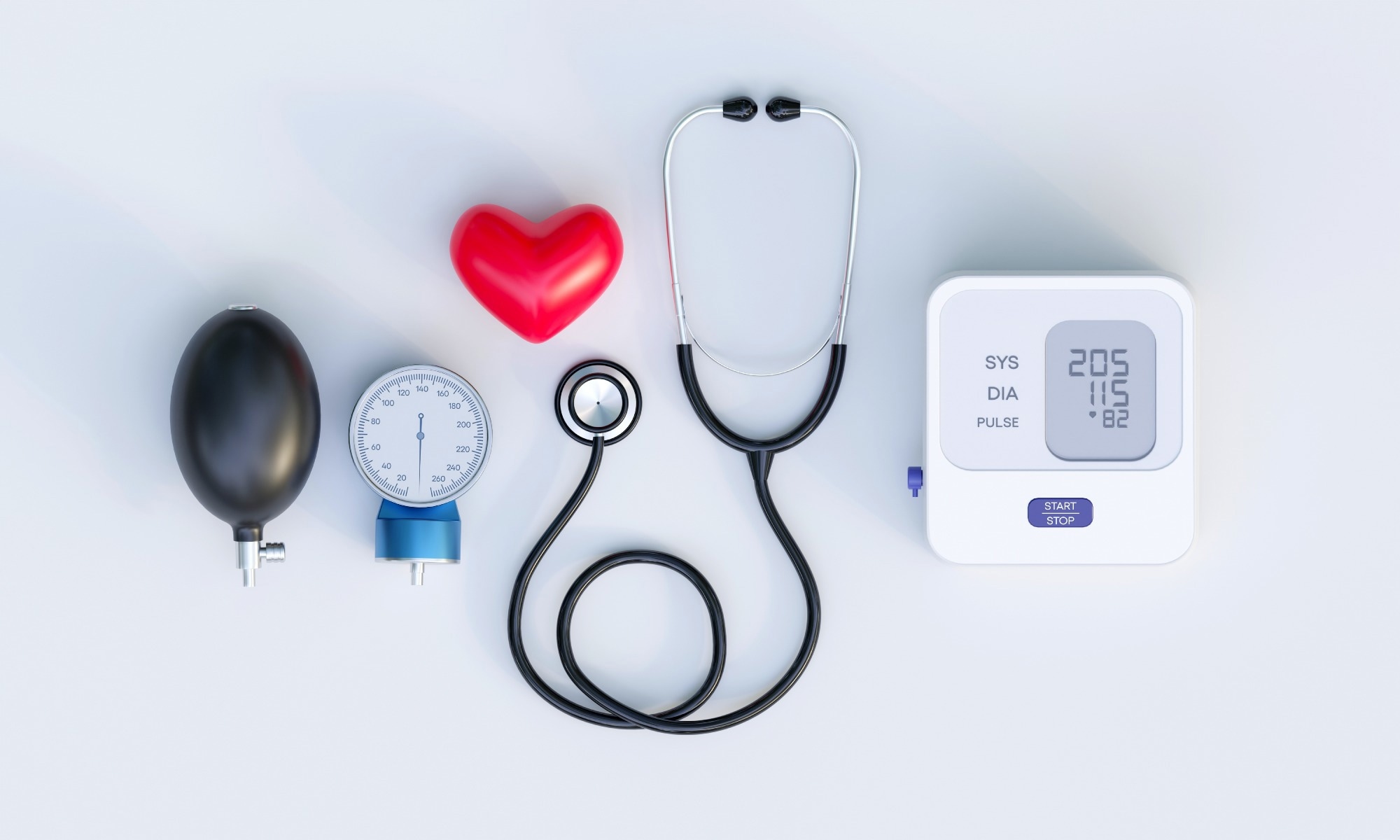Hypertension prevalence continues to rise worldwide. Hypertensive individuals are at increased risk of cardiovascular disease. Hypertension not only affects population health but has also caused considerable economic losses in several nations, warranting early diagnosis and prompt treatment of the condition, facilitated by increasing awareness and coordinated government efforts.
 Global report on hypertension: the race against a silent killer. Image Credit: The Creative Guy / Shutterstock
Global report on hypertension: the race against a silent killer. Image Credit: The Creative Guy / Shutterstock
About the report
In the present report, researchers highlighted the regional-, country-, and global-level burden of hypertension and described WHO recommendations on ways to control it.
Health and economic implications of hypertension
The report included troubling figures highlighting the far-reaching implications of uncontrolled hypertension, which ranged from heart attacks, strokes, and early mortality to significant economic losses for communities and countries. Furthermore, the following profiles provide a country-by-country picture of the burden and control of hypertension.
Hypertension is a frequent and fatal disorder that can result in various health issues, such as heart attack, stroke, cardiac failure, and renal damage. According to the research, hypertension affects one out of every five individuals worldwide. Between 1990 and 2019, the count of hypertensive individuals [blood pressure (BP) ≥ 140/90 mm of Hg or consuming hypertension medications] more than quadrupled, to over one billion from 650.0 million.
Globally, about half of hypertensive people are ignorant of their disease. More than 75% of hypertensive adults reside in middle- and low-income nations. According to the analysis, four out of every five people with hypertension are not receiving proper treatment, but if countries increased coverage, 76 million fatalities might be avoided between 2023 and 2050.
The economic advantages of enhanced hypertension treatment programs surpass the expenditures by a factor of around 18 to 1. Between now and 2050, increasing the proportion of people adequately treated for hypertension to levels seen in high-performing nations might save 76 million lives, 120 million strokes, 79 million heart attacks, and 17 million episodes of heart failure. However, hypertension management efforts continue to be ignored, underfunded, and underprioritized.
Recommendations to control hypertension
Prevention, early identification, and efficient treatment of elevated blood pressure are highly cost-efficient healthcare interventions, and governments should emphasize them as a part of the national health advantage package provided at primary care centers. Although heredity and older age might raise the chance of developing high blood pressure, modifiable risk factors such as eating a high-salt diet, being physically sedentary, and consuming excessive alcohol can also increase the risk.
Lifestyle changes, such as eating a better diet, stopping smoking, and being more active, can all help reduce blood pressure. The majority of strokes and cardiac worldwide in current times may be avoided using inexpensive, safe, and readily available drugs and other measures such as salt reduction. Some people may require medications to adequately treat hypertension and prevent associated problems. Using systems like HEARTS, hypertension may be readily controlled with widely available, safe, and cost-effective generic drugs.
The WHO HEARTS health initiative for cardiovascular wellness in primary care centers and the guidelines for pharmacologically treating hypertension among adults provide tried-and-true techniques for providing successful hypertension therapy at primary care centers. Effective national- and community-level blood pressure control is possible across nations regardless of income levels. With the HEARTS package, over 40 low-income and middle-income nations, including Cuba, Bangladesh, Sri Lanka, and India, have upgraded their blood pressure regulation, enrolling over 17 million individuals in treatment programs.
Nations such as South Korea and Canada implemented extensive national-level hypertension control programs, and both exceeded the 50% threshold for managing blood pressure among hypertensive individuals. Sustained, comprehensive national hypertension management programs may succeed in controlling blood pressure and, therefore, preventing myocardial infarctions and strokes, as well as increasing survival as well as quality of life. For controlling uncontrolled blood pressure, drug- and dose-specific therapeutic regimens with specified action steps could help simplify therapy and increase adherence.
Regular, continuous access to inexpensive medication is required to ensure the effectiveness of hypertension therapy; in recent times, costs for important anti-hypertensive medications have varied by greater than 10-fold among nations. Patient outcomes could improve by increasing cooperation between teams to adapt and enhance anti-hypertensive drug regimens according to medical orders and procedures.
Reducing obstacles to health care by offering simple drug regimes, free prescriptions, and near-home appointments for follow-up evaluations, as well as increasing the availability of BP monitoring devices, could help decrease the hypertension burden. Moreover, user-centered, simple data systems enable the quick collection of vital patient-level information, decrease the burden of data entry on healthcare workers, and assist in swift scaling up while preserving or increasing treatment quality.
To conclude, the WHO HEARTS package equips nations with critical tools for improving hypertension prevention, control, and surveillance. This report highlighted advancements in hypertension management and offered advice to governments on ways to safeguard their citizens from this silent killer. Strengthening hypertension control is critical for universal health coverage, which is based on health systems that are well-functioning, egalitarian, and robust. Treating hypertension with primary care saves lives and billions of dollars each year.